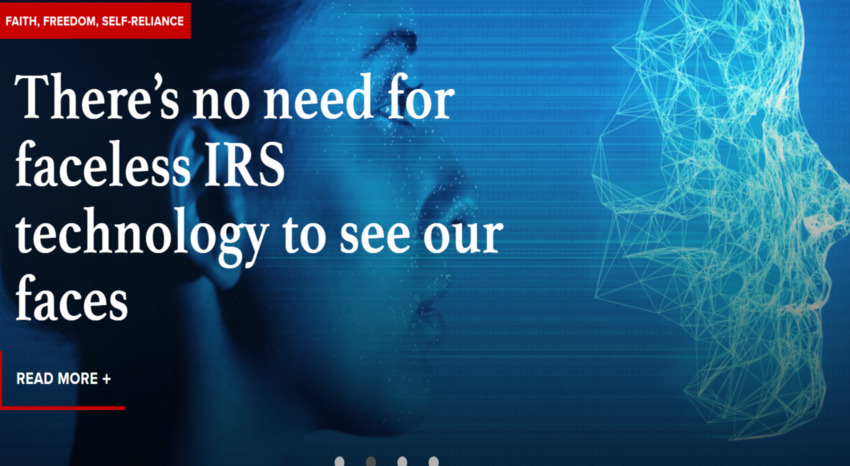There’s no need for faceless IRS technology to see our faces

screenshot washington examoner 2
Congress ought to introduce and pass stand-alone legislation blocking the IRS from requiring a face scan from people accessing the IRS.gov website.
This is not complicated. What the IRS is trying to do is a massive invasion of privacy and an open invitation to error and abuse of the sort that frustrated taxpayers may have an almost insurmountable challenge to rectify. At a time when the IRS already is woefully understaffed and incompetent, the new requirement is a prescription for disaster.
Beginning this summer, anyone wanting to log in to the IRS website will be required to submit to facial recognition scanning for just about all purposes other than filing their own returns. To access their own online tax accounts, or to check the Child Tax Credit Update Portal, the face scan will be needed. The scans will be managed by a private technology company called ID.me.
Critics worry that this is just one more way for personal information to be hacked — and also just one more way for technological glitches to create hellish experiences for innocent taxpayers.
“Anyone who hits a snag,” reports the Washington Post, “is funneled into the backup video-chat verification process … [in which] the average wait time in the second half of 2021 was less than eight minutes, and the busiest weeks saw average waits of about 50 minutes.”
Gee, is that all? After already wading through the confusing forms, red tape, and bureaucracy for which the IRS is infamous, taxpayers now must submit to a process which, if it hits a technological glitch, might subject them to a nearly hourlong wait in a “busy” week. And, reports the Post, “the security blogger Brian Krebs wrote last week that he faced a three-hour wait trying to confirm his IRS account, three months before the tax-filing deadline.”
And what if the private company still errs? What recourse would a taxpayer have? Where, within the IRS, can he go for help? This is the same IRS that in 2021 was unable even to take the calls of 88.6% of the people who used its phone helpline. And when it does take the calls, after an average wait of 23 minutes, it gives wrong answers about a third of the time. Yet if a taxpayer files his return incorrectly based on those wrong answers, it is the taxpayer, not the IRS agent, who is held at fault and perhaps subject to penalties.
This isn’t a merely fanciful fear or the complaint from cranky Luddites either. To quote the Post again, “The technological demands of an internet-connected video camera can unfairly burden the millions of Americans with spotty online access or old phones. … Even the best systems, [critics say], can make mistakes when shown blurry, dim, or low-quality images,” and police have been known to use mistaken facial-recognition technology to make “wrongful arrests.”
Anyone who has had a scrape with an at-fault but unresponsive IRS knows there is potential not only for major hassles but for ruined lives. That’s why Congress should step in. It should pass a law, now, to put a long-term hold on this IRS requirement, pending thorough expert review. The IRS needs more money for customer support, not more ways to make taxpayers jump through hoops while trying to comply with confusing and confiscatory demands on the fruits of their labor.















